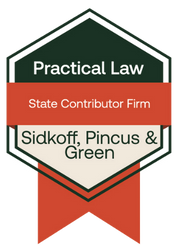
A recent Central District of California decision shed some light on the application of the Digital Millennium Copyright Act’s (DMCA) Section 512(c) safe harbor provision. Under the safe harbor, online service providers that meet certain requirements may avoid liability for damages that may arise from infringing content uploaded by service users. In Greg Young Publishing, Inc. (GYPI) v. Zazzle, Inc. (Zazzle), the court addressed the question of whether Section 512(c) safe harbor may protect an online service provider that commercially exploited infringing content.
Zazzle operates a website on which users may upload images. Other users may have the images printed on various merchandise including coffee mugs, posters, and t-shirts. The users typically do not own the images and have not obtained authorization from the owners to upload them. Zazzle does not ensure that images are not infringing, rather the company manufactures the product once it is ordered, delivers it to the purchaser, and pays a royalty to the user who uploaded the image.
Zazzle displayed 41 paintings owned by GYPI and created consumer products for sale from the paintings. GYPI sued Zazzle for copyright infringement and Zazzle asserted Section 512(c) safe harbor as an affirmative defense. GYPI argued that Zazzle could not rely upon safe harbor because: (1) Zazzle is not a service provider, (2) Zazzle knew that their services infringed upon GYPI’s copyright, and (3) Zazzle had the right and ability to control the infringing activity, choosing to exploit the paintings for financial benefit.
Case Argument
First, GYPI argued that Zazzle is not a service provider because it does not accept and display user-submitted images, but also manufactures and sells products based on those images. The court rejected this argument, finding that Zazzle was unquestionably a provider of online services and therefore a service provider within the definition of that term in Section 512(c) safe harbor.
Second, GYPI argued that Zazzle had specific knowledge of the infringing content, rendering Zazzle ineligible for safe harbor protection. The court held that a service provider only has such knowledge when the copyright holder submits a DMCA-compliant or a third party submits a sufficiently specific complaint. Therefore, GYPI’s complaints to Zazzle about infringing content and the fact that GYPI sent Zazzle a catalogue of images for them to check for infringement, were not enough to constitute specific knowledge.
Finally, the court held that Zazzle received a financial benefit from, and that it had the right and ability to control, the infringing activity. The court acknowledged that Zazzle had the ability to remove infringing content, terminate repeat infringers’ accounts, and engage in limited monitoring of the site. However, this does not amount to a right and ability to control, which only exists when a service provider plays a more active role in user content. This happens specifically when the service provider exerts substantial influence over activities such as selection, monitoring, and marketing of user content.
In this case, the court held that Zazzle did exert the substantial influence necessary to render it unable to be shielded by Section 512(c) safe harbor because Zazzle’s content management team approved user’s orders; the subsequent automated nature of the process is irrelevant. Therefore, Zazzle will be liable for copyright infringement damages resulting from the sale of products displaying the protected images.
Philadelphia Intellectual Property Lawyers at Sidkoff, Pincus & Green P.C. Represent Clients in Copyright Disputes
Philadelphia intellectual property lawyers at Sidkoff, Pincus & Green P.C. represent clients in copyright disputes throughout Pennsylvania and New Jersey, including Philadelphia and South Jersey. Contact us online or call us at 215-574-0600 to discuss your case.


















